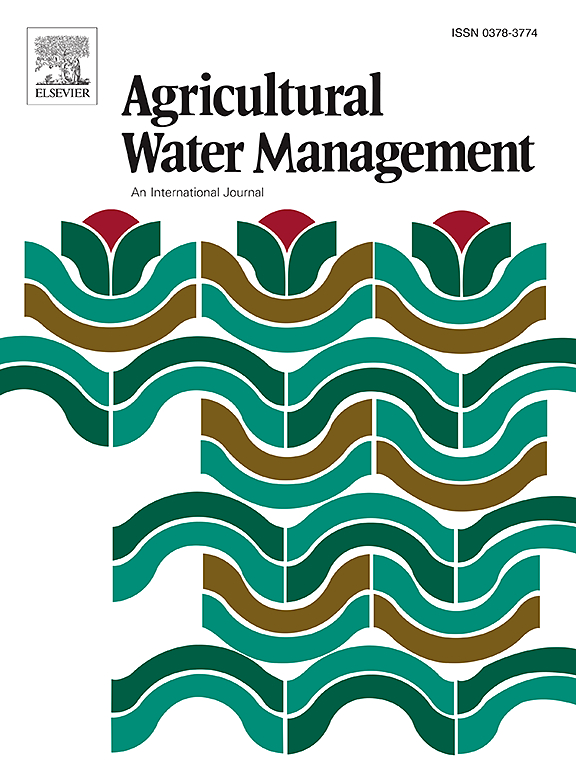Connecting the drops: A methodological challenge for the deployment of ICTs in mediterranean irrigation systems
IF 5.9
1区 农林科学
Q1 AGRONOMY
引用次数: 0
Abstract
The vulnerability of irrigated systems in areas coping with water scarcity has boosted the demand for information and communication technologies (ICTs), e.g. tools and services derived from field sensors or satellite data. ICTs are promising tools to track and quantify water flows and transfers, yet their increased accessibility and production benefits does not often lead to their increased deployment beyond the group involved in the initial design and testing process. To support technological innovation scaling, an interdisciplinary approach and an original methodology are developed and implemented. The objective is to explore the dynamics of ICTs initiatives in irrigation systems and facilitate horizontal outreach. Technological emergence and diffusion is captured through in-depth analyses of information and collaboration processes operated by the technologies. Investigation into global and local datasets to map irrigation technical layouts at a regional scale shows a gap between representations of irrigation phenomenon, but used in combination these information sources can help characterize diffusion potential. Feedbacks from empirical works in a set of multistakeholder innovation platforms show that collaborative mechanisms during technological experimentations can be diverse but remain crucial to empower irrigation communities. This methodological investigation fuels the debate on digital agriculture, and shows that there are alternative avenues for irrigation sustainable development through technology. Finally, pathways for information and knowledge circulation across actors, scales, and contexts are identified, highlighting researchers’ role to collect, document, and share datasets and stories. Still, learning opportunities should not obscure the operational challenges towards a translocal network of ICTs initiatives for irrigation systems.
连接点滴:在地中海灌溉系统中部署信息通信技术的方法挑战
在应对水资源短缺的地区,灌溉系统的脆弱性提高了对信息和通信技术(ict)的需求,例如来自现场传感器或卫星数据的工具和服务。信息通信技术是跟踪和量化水流和转移的有前途的工具,但其可及性和生产效益的增加往往无法使其在参与初始设计和测试过程的群体之外得到更多的部署。为了支持技术创新的规模,一个跨学科的方法和一个原始的方法被开发和实施。其目标是探索信息通信技术倡议在灌溉系统中的动态,并促进横向推广。通过对技术操作的信息和协作过程的深入分析,捕捉技术的出现和扩散。对全球和当地数据集进行调查,以绘制区域尺度上的灌溉技术布局图,结果显示灌溉现象的表示之间存在差距,但结合使用这些信息源可以帮助表征扩散潜力。来自多利益相关者创新平台的实证研究反馈表明,技术试验过程中的协作机制可以是多种多样的,但对于灌溉社区的赋权仍然至关重要。这一方法学调查推动了关于数字农业的辩论,并表明通过技术实现灌溉可持续发展还有其他途径。最后,确定了信息和知识在参与者、规模和背景之间的流通途径,强调了研究人员在收集、记录和共享数据集和故事方面的作用。尽管如此,学习机会不应掩盖为灌溉系统建立跨地区信息通信技术倡议网络所面临的运营挑战。
本文章由计算机程序翻译,如有差异,请以英文原文为准。
求助全文
约1分钟内获得全文
求助全文
来源期刊

Agricultural Water Management
农林科学-农艺学
CiteScore
12.10
自引率
14.90%
发文量
648
审稿时长
4.9 months
期刊介绍:
Agricultural Water Management publishes papers of international significance relating to the science, economics, and policy of agricultural water management. In all cases, manuscripts must address implications and provide insight regarding agricultural water management.
 求助内容:
求助内容: 应助结果提醒方式:
应助结果提醒方式:


